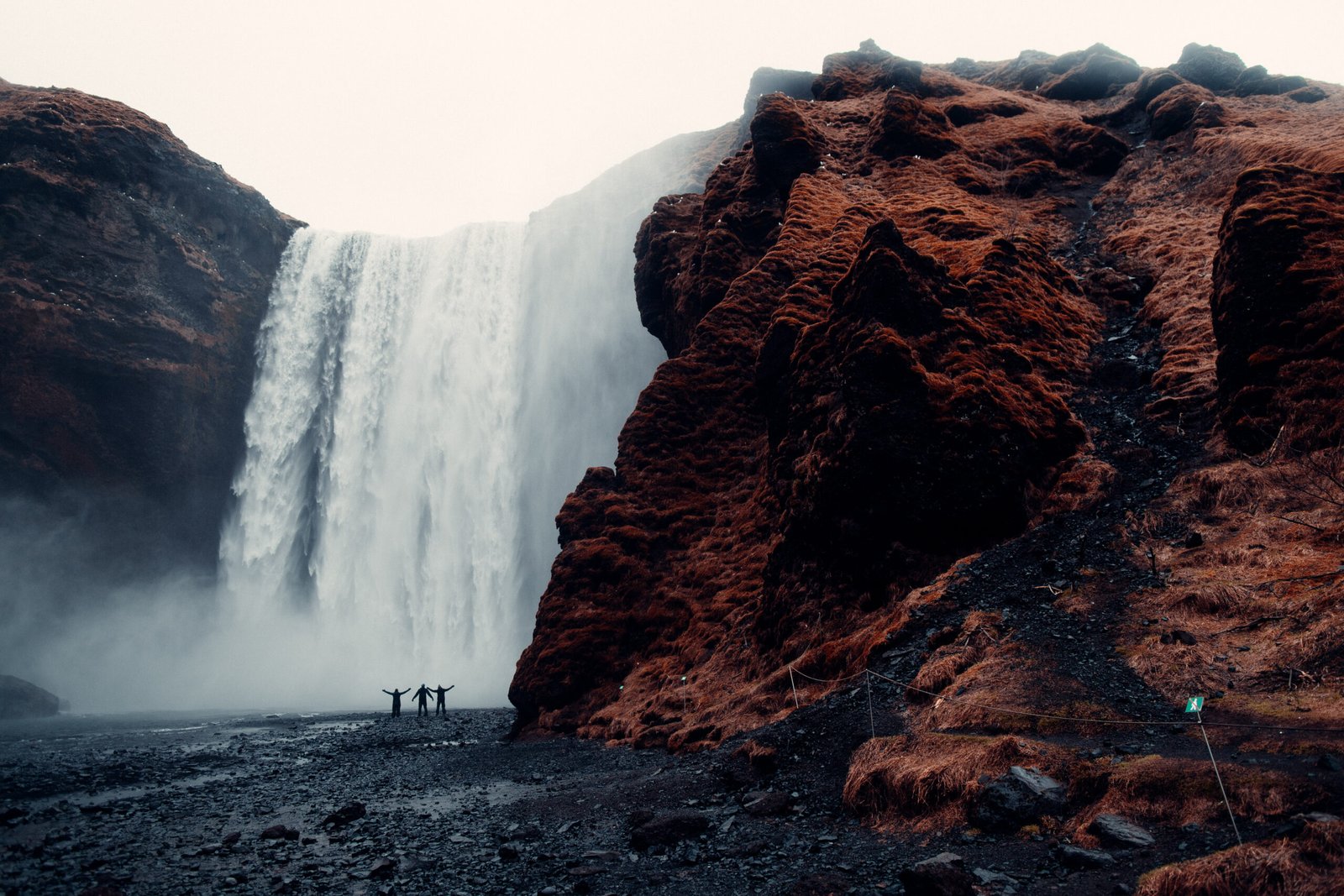
Toksook Bay, Alaska
Imagine a serene village nestled in the heart of Alaska, where the rhythm of life flows to the beat of tradition and the embrace of community. Welcome to Toksook Bay, Alaska, a place that captivates with its untouched beauty and rich cultural heritage. In this remote city, time seems to slow down, offering a respite from the chaos of the modern world. From its picturesque landscapes to the warm smiles of its residents, Toksook Bay beckons you to explore the wonders that lie within its boundaries.
Geography
Location
Toksook Bay is a small remote village located on the western coast of Alaska, specifically in the Bethel Census Area. Situated on Nelson Island, it is surrounded by the Bering Sea to the west and tundra landscapes to the east. The village is isolated, with no road access to other communities in the state. The nearest town, Tununak, is approximately five miles away and is accessible by boat or snowmobile during the winter months.
Climate
Toksook Bay experiences a harsh subarctic climate characterized by long, cold winters and short, mild summers. The average winter temperature hovers around -13°F (-25°C), while summer temperatures rise to an average of 57°F (14°C). The region receives relatively low precipitation throughout the year, with most of it falling as snow during the winter months. Strong winds and coastal storms are common, making the weather conditions even more challenging.
History
Early Inhabitants
The area around Toksook Bay has been inhabited for over 2,000 years by Yup’ik Eskimo people. They have thrived on subsistence activities such as fishing, hunting, and gathering. The bountiful resources found in the surrounding rivers, lakes, and tundra provided sustenance and a way of life for these early inhabitants. The village of Toksook Bay has deep cultural roots that have been passed down through generations, maintaining strong ties to their ancestral heritage.
Russian Settlement
In the 19th century, Russian explorers and traders encountered the Yup’ik people, leading to the establishment of a Russian Orthodox mission in the area. The Russian influence brought changes to the traditional way of life, introducing new aspects of religion and trade. However, it was not until the American purchase of Alaska from Russia in 1867 that increased contact with outside forces significantly impacted Toksook Bay.
American Influence
With the arrival of American traders and missionaries, the Yup’ik people began to adapt to new ways of life. The introduction of Western education, technology, and religion shaped the village’s development. The establishment of schools played a crucial role in the integration of Western knowledge with traditional Yup’ik values, creating a unique cultural blend that still persists today.
Recent Developments
In recent years, Toksook Bay has undergone various developments to improve infrastructure and community services. The construction of a new school facility and a community hall have strengthened educational and social opportunities. Additionally, initiatives to upgrade transportation, healthcare facilities, and reliable internet access have improved the quality of life for the residents. These developments aim to promote the sustainability and growth of the community amidst modern challenges.

Demographics
Population
As of the latest census, the population of Toksook Bay is around 600 residents. The village has experienced relatively stable population numbers in recent years, with a slight increase compared to previous decades. The population is primarily composed of Yup’ik Eskimo people, who maintain a strong connection to their cultural heritage and traditional way of life.
Ethnic Groups
The majority of Toksook Bay’s population consists of Yup’ik Eskimo people, who have inhabited the area for thousands of years. Their cultural practices, such as subsistence activities and Yup’ik language usage, remain integral to the community’s identity. Other smaller ethnic groups, such as individuals of Russian or mixed heritage, also contribute to the village’s diversity.
Languages
The primary language spoken in Toksook Bay is Yup’ik, a language rooted in the ancient traditions of the Yup’ik Eskimo people. Yup’ik is still taught in local schools, highlighting the village’s commitment to preserving cultural heritage and language. English is also widely spoken, especially among younger generations who have been exposed to Western influences and education.
Economy
Traditional Subsistence Activities
The economy of Toksook Bay primarily relies on traditional subsistence activities, which include fishing, hunting, and gathering. These activities are not only sources of food but also vital components of the community’s cultural fabric. Residents engage in subsistence fishing for salmon, whitefish, and other marine species found in the nearby rivers and the Bering Sea. Hunting and gathering for resources such as berries and game animals further supplement their nutritional needs.
Commercial Fishing
In addition to subsistence fishing, commercial fishing plays a significant role in the economy of Toksook Bay. The surrounding waters are abundant with fish, and the village operates a local cannery to process commercial catches. Residents participate in the commercial fishing industry, contributing to the local economy. The commercial fishing season brings employment opportunities and economic stability to the community.
Tourism
With its breathtaking natural beauty and rich cultural heritage, Toksook Bay has the potential to attract tourism. The village’s unique location and traditional lifestyle provide visitors with an opportunity to experience the wonders of Alaska’s remote regions. Adventure seekers and cultural enthusiasts can immerse themselves in the traditional practices, enjoy scenic tours of the Nunapitchuk River or explore the rugged landscapes of the region. The development of tourism would diversify the local economy and open up employment opportunities for residents.

Infrastructure
Transportation
As a remote village, Toksook Bay faces challenges in transportation infrastructure. During the winter months, when the rivers freeze, snowmobiles and sleds are the primary means of transportation. In the summer, boats are used to navigate the waterways. The village has an airstrip, providing air travel connections to other communities and facilitating the delivery of supplies. However, the lack of road access remains a significant obstacle to connecting Toksook Bay to the outside world.
Education
The education system in Toksook Bay has progressed significantly over recent years. The village has a school that integrates Yup’ik language and cultural education with standard academic curriculum. The school serves as a hub for community events and fosters a sense of pride in the local culture. Efforts have been made to expand educational opportunities, including the construction of a new school facility and the incorporation of technology to enhance learning experiences.
Healthcare
Access to healthcare services is essential in remote communities like Toksook Bay. The village has a health clinic staffed by nurses and a visiting physician. However, due to the remote location, accessing specialized medical care can be challenging. Emergency medical evacuations are necessary in critical situations. Efforts are ongoing to improve healthcare infrastructure and access to comprehensive medical services to ensure the well-being of residents.
Culture
Traditions and Customs
The indigenous Yup’ik culture is deeply ingrained in the fabric of Toksook Bay. The village reveres the ancestral traditions and customs, with practices such as dance, storytelling, and subsistence activities holding immense cultural significance. Elders play a crucial role in passing down traditional knowledge and values to younger generations, fostering a strong sense of community identity.
Arts and Crafts
Yup’ik artistic traditions thrive in Toksook Bay, with villagers creating intricate artwork and crafts. These include beautifully carved masks, baskets, and traditional clothing adorned with vibrant beadwork. These art forms often depict important Yup’ik cultural symbols and narratives, reflecting a deep connection to the natural environment and spiritual beliefs.
Festivals and Events
Toksook Bay celebrates cultural events and festivals throughout the year, providing opportunities for residents and visitors to engage with Yup’ik traditions. The Coming of the Light Festival, held every January, commemorates the arrival of missionaries and the introduction of Christianity to the region. The annual Yup’ik Dance Festival showcases traditional dance and music, bringing together communities from across the region to celebrate their shared heritage.

Notable Landmarks
Nunapitchuk River
The Nunapitchuk River serves as a lifeblood for the village, offering not only a means of transportation and subsistence but also spiritual and cultural significance. The river’s tranquil waters wind through the tundra landscapes, providing a serene backdrop for outdoor activities and gatherings. It is a symbol of the community’s strong ties to the land and the traditions that have sustained them for generations.
Kanektok River
The Kanektok River, located near Toksook Bay, is renowned for its world-class sport fishing opportunities. Anglers from around the globe visit this pristine river to seek out trophy-sized salmon and trout. The Kanektok River not only supports the local economy through sport fishing tourism but also represents a connection between the modern world and the traditional subsistence practices of the Yup’ik people.
Toksook River
The Toksook River, from which the village takes its name, is a beautiful waterway that flows into the Bering Sea. This river provides essential resources, such as fish and waterfowl, to the village residents. Its proximity to the community allows for convenient access to subsistence activities and promotes a close relationship between the people of Toksook Bay and the natural world that sustains them.
Important Figures
Dennis Demmert
Dennis Demmert is a notable figure and leader within the Toksook Bay community. He has dedicated his life to advocating for the rights and wellness of indigenous communities, working to improve education and cultural preservation. Demmert’s efforts have been instrumental in promoting the Yup’ik culture and ensuring that younger generations have access to quality education while maintaining a strong connection to their roots.
Eileen Panigeo MacLean
Eileen Panigeo MacLean, a respected Yup’ik leader and educator, has made significant contributions to the preservation and promotion of indigenous languages and knowledge. She has worked tirelessly to revitalize Yup’ik language and cultural education within the Toksook Bay community. MacLean’s dedication to cultural bridge-building and language revitalization has had a lasting impact on the community and its future generations.
Challenges and Opportunities
Climate Change
Toksook Bay, like many coastal communities in Alaska, faces the immediate threat of climate change. Rising sea levels, coastal erosion, and changing weather patterns pose significant challenges to the village’s infrastructure and traditional way of life. The disruption of local ecosystems and wildlife habitats can impact subsistence activities, leading to food security concerns. However, efforts are underway to adapt to these changes and mitigate their effects through sustainable practices and community resilience initiatives.
Infrastructure Improvement
The remote location of Toksook Bay presents ongoing challenges in terms of infrastructure development and maintenance. Improving transportation, including road connections, can enhance access to essential services and connect the community to the broader region. Investments in healthcare facilities and reliable internet access would contribute to improved quality of life and support economic diversification initiatives, such as tourism.
Youth Empowerment
Empowering the youth of Toksook Bay plays a vital role in the community’s future. Education programs that incorporate traditional knowledge and Western teachings can provide opportunities for younger generations to navigate modern challenges while staying connected to their cultural heritage. Encouraging entrepreneurship, leadership development, and fostering a strong sense of cultural pride can equip young residents with the skills and confidence needed to shape their community’s future.
Conclusion
Toksook Bay, Alaska, is a village that harmoniously blends the richness of its indigenous Yup’ik culture with the challenges and opportunities of the modern world. Its unique geography, deep-rooted traditions, and resilient community spirit form the foundation of this remote village’s identity. Despite the climate change threats, infrastructure limitations, and cultural evolution, Toksook Bay strives to preserve its heritage while embracing progress. As the village continues to adapt and grow, it stands as a testament to the strength and resilience of Alaska’s indigenous communities.
